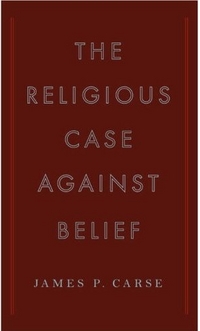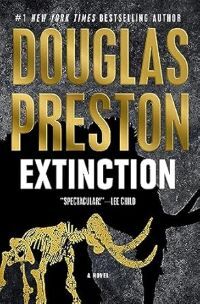

Purchase
The Religious Case Against Belief
James Carse
A provocative, insightful explanation for why it is that belief?not religion?keeps us in a perilous state of willful ignorance
Penguin Press
June 2008
On Sale: May 29, 2008
240 pages
ISBN: 1594201692
EAN: 9781594201691
Hardcover
Add to Wish List
Non-Fiction Religion
In The Religious Case Against Belief, James Carse identifies
the twenty-first century’s most forbidding villain: belief.
In distinguishing religions from belief systems, Carse works
to reveal how belief—with its restriction on thought and
encouragement of hostility—has corrupted religion and
spawned violence the world over. Galileo, Martin Luther, Abraham Lincoln, and Jesus
Christ—using their stories Carse creates his own brand of
parable and establishes a new vocabulary with which to study
conflict in the modern world. The Religious Case Against
Belief introduces three kinds of ignorance: ordinary
ignorance (a mundane lack of knowledge, such as ignorance of
tomorrow’s weather or the reason why your stove is
malfunctioning), willful ignorance (an intentional avoidance
of accessible knowledge), and finally higher ignorance (a
learned understanding that no matter how many truths we may
accumulate, our knowledge falls infinitely short of the truth). While ordinary ignorance is common to all people, Carse
associates the strongest manifestation of willful ignorance
with the most fervent (and dangerous) of believers. He
points to the historic conflict between Martin Luther and
Holy Roman Emperor Charles V both to reveal this seemingly
religious collision as a clash of belief and to identify
belief ’s inherently destructive characteristics. From
Luther to the contemporary Christian right, we learn that
believers construct identity by erecting boundaries and by
fostering aggression between the believer and the other.
This is why belief systems choose—at great cost—to remain
locked in bloody conflict rather than to engage in dialogue,
recognizing the great deal they have in common. This is
willful ignorance. In fierce contrast to willful ignorance, higher ignorance is
an acquired state enhanced by religion. Those traveling the
path to higher ignorance recognize faith teachings (such as
the Bible) as poetry intended to promote contemplation,
interpretation, and a sense of wonder. For evidence of
religion’s deeply embedded rejection of singular truth and
its acceptance of diverse dialogue, Carse looks to the many
faces of Jesus presented in the books of the Bible and
elsewhere. Uncontaminated by belief systems, religion
rejects the imagined boundaries that falsely divide people
and ideas, working to expand horizons. The Religious Case Against Belief exposes a world in which
religion and belief have become erroneously (and
terrifyingly) conflated. In strengthening their association
with powerful belief systems, religions have departed from
their essential purpose as agencies of higher ignorance.
Carse uses his wideranging understanding of religion to find
a viable and vital path away from what he calls the Age of
Faith II and toward open-ended global dialogue. Far from
abstract philosophical musing, The Religious Case Against
Belief is required reading for our age.
Comments
No comments posted.
Registered users may leave comments.
Log in or register now!
| 


 © 2003-2025 off-the-edge.net
all rights reserved Privacy Policy
© 2003-2025 off-the-edge.net
all rights reserved Privacy Policy